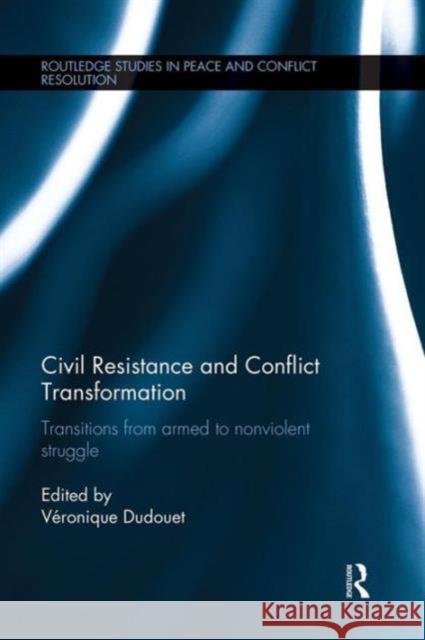Civil Resistance and Conflict Transformation: Transitions from armed to nonviolent struggle » książka
Civil Resistance and Conflict Transformation: Transitions from armed to nonviolent struggle
ISBN-13: 9781138120143 / Angielski / Miękka / 2015 / 262 str.
Civil Resistance and Conflict Transformation: Transitions from armed to nonviolent struggle
ISBN-13: 9781138120143 / Angielski / Miękka / 2015 / 262 str.
(netto: 219,18 VAT: 5%)
Najniższa cena z 30 dni: 201,44
ok. 22 dni roboczych.
Darmowa dostawa!
This book investigates the decision-making process, rationale and determining factors which underlie the strategic shifts of armed movements from violent to nonviolent resistance. The revival of global interest in the phenomenon of nonviolent struggle since the 2011 Arab Spring offers a welcome opportunity to revisit the potential of unarmed resistance as an alternative pathway out of armed conflicts, in cases where neither military (or counter-insurgency) nor negotiated solutions have succeeded. This volume brings together academics from various disciplinary traditions and offers a wide range of case studies including South Africa, Palestine and Egypt through which to view the changes from violence to nonviolence within self-determination, revolutionary or pro-democracy struggles. While current historiography focuses on armed conflicts and their termination through military means or negotiated settlements, this book is a first attempt to investigate the nature and the drivers of transitions from armed strategies to unarmed methods of contentious collective action on the part of non-state conflict actors. The text concentrates in particular on the internal and relational factors which underpin the decision-making process, from a change of leadership and a pragmatic re-evaluation of the goals and means of insurgency in the light of evolving inter-party power dynamics, to the search for new local or international allies and the cross-border emulation or diffusion of new repertoires of action. This book will be of interest to students of security studies, peace and conflict studies, political sociology and IR in general."











